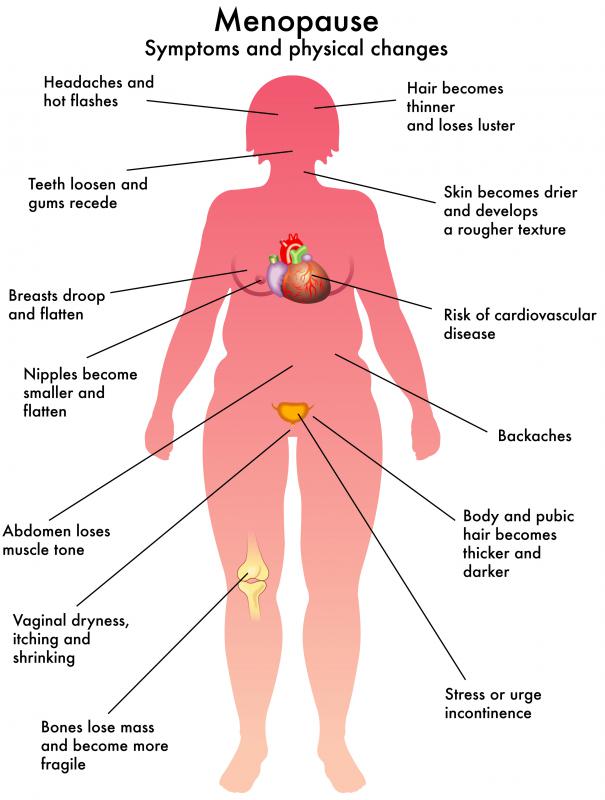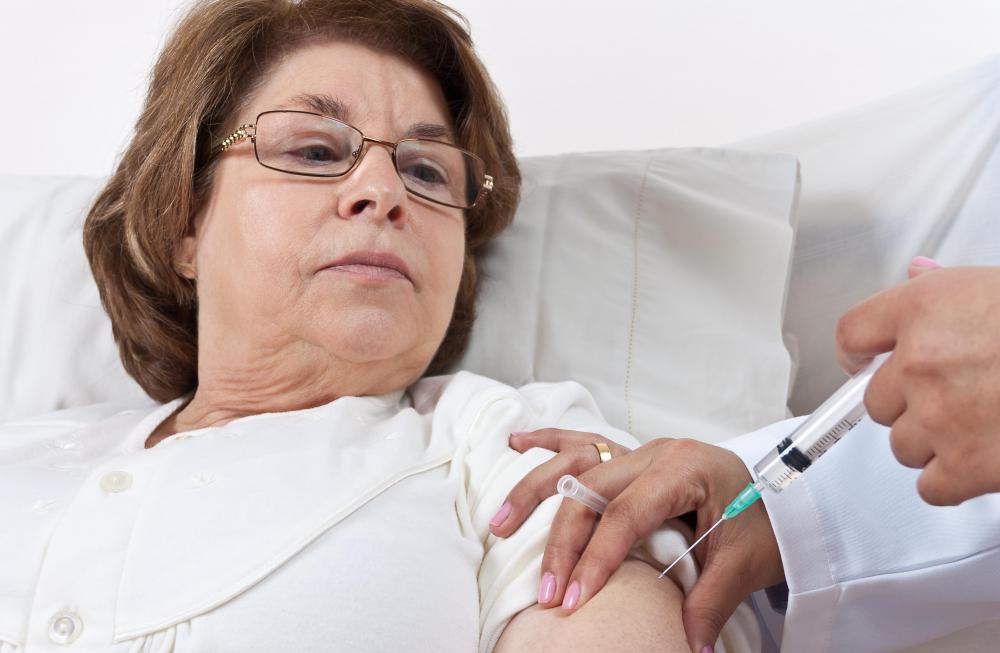At WiseGEEK, we're committed to delivering accurate, trustworthy information. Our expert-authored content is rigorously fact-checked and sourced from credible authorities. Discover how we uphold the highest standards in providing you with reliable knowledge.
What Is the Connection between Vaginal Discharge and Menopause?
Some type of vaginal discharge is common throughout a woman’s life, including during and after menopause. When a woman nears or reaches menopause, the main change she experiences is that the normal bleeding she has due to menstruation will become irregular, then slow and ultimately cease. This process is slightly different for every woman, so variations in how monthly bleeding stops are normally no cause for concern.
If a woman has reached menopause, which means she has not had a menstrual period for at least a year, she should never see any vaginal discharge that contains blood. If she has any kind of a bloody vaginal discharge and menopause, it is an indication that she may have a serious condition and should consult a physician as soon as possible. This type of discharge can indicate the possibility of many different conditions, including fibroids or uterine cancer. In most cases, it is likely to be a benign problem, but because the possibility of cancer exists, it is important to get it checked.

Other times, the combination of vaginal discharge and menopause can be a cause for concern if the discharge is oddly colored, such as brown or light pink. Such discolored discharge is likely to be the result of some type of bleeding and it can indicate a problem with the vagina, cervix or uterus. It should be investigated, even if it is not accompanied by any other symptoms. This type of bleeding is often caused by polyps or fibroids, but it can signal other problems as well.

Sometimes as a woman gets older, the problem with vaginal discharge and menopause is that she tends to stop having normal discharge, due to hormonal changes, which results in vaginal dryness. This can cause problems during sexual intercourse, but it is normal and rarely indicates any type of a serious problem. Generally, women are able to resolve difficulties with vaginal dryness during intercourse through the use of lubricants.

In some cases a woman’s concerns about vaginal discharge and menopause relate to the presence of a clear or whitish discharge. This type of discharge is normal at all stages of a woman’s life, and is not a cause for concern. Only if the discharge becomes excessive or if it has a foul odor does it need to be investigated further. In such cases the discharge could be a symptom of a yeast or other infection, which requires medical assistance to resolve.
AS FEATURED ON:
AS FEATURED ON:



















Discussion Comments
I have been in menopause for several years and all of a sudden have a clear, odorless, slippery discharge. Concerns?
@SarahGen-- Yes, post menopausal vaginal discharge is normal. It has to do with estrogen and the pH level of the vagina.
After menopause, estrogen levels drop. This change triggers a change in the pH levels of the vagina, it goes from being acidic to alkaline. When an environment is acidic, it prevents many bacteria from growing. So when it shifts to an alkaline pH, the environment becomes more suitable for the growth of bacteria. It's this bacterial growth that leads to discharge and also odor.
There are antibacterial vaginal creams that can be used if the discharge and odor become very uncomfortable. A gynecologist can prescribe one.
@simrin-- I have no idea. My experience has been exactly the opposite. I started getting a lot of discharge after I went into menopause. This is apparently normal and has to do with changes in hormone levels.
About the odor, I don't know if there is a connection between odor and vaginal discharge. But it's for sure that vaginal odor changes after menopause. My girlfriends and I have talked about this and everyone seems to be in the same boat.
I don't have vaginal discharge after menopause. On the contrary, I'm experiencing vaginal dryness and I also have foul odor.
I have seen my doctor recently and there is no infection. I'm really confused. Why do I have the odor despite not having vaginal discharge? Is this abnormal?
Post your comments